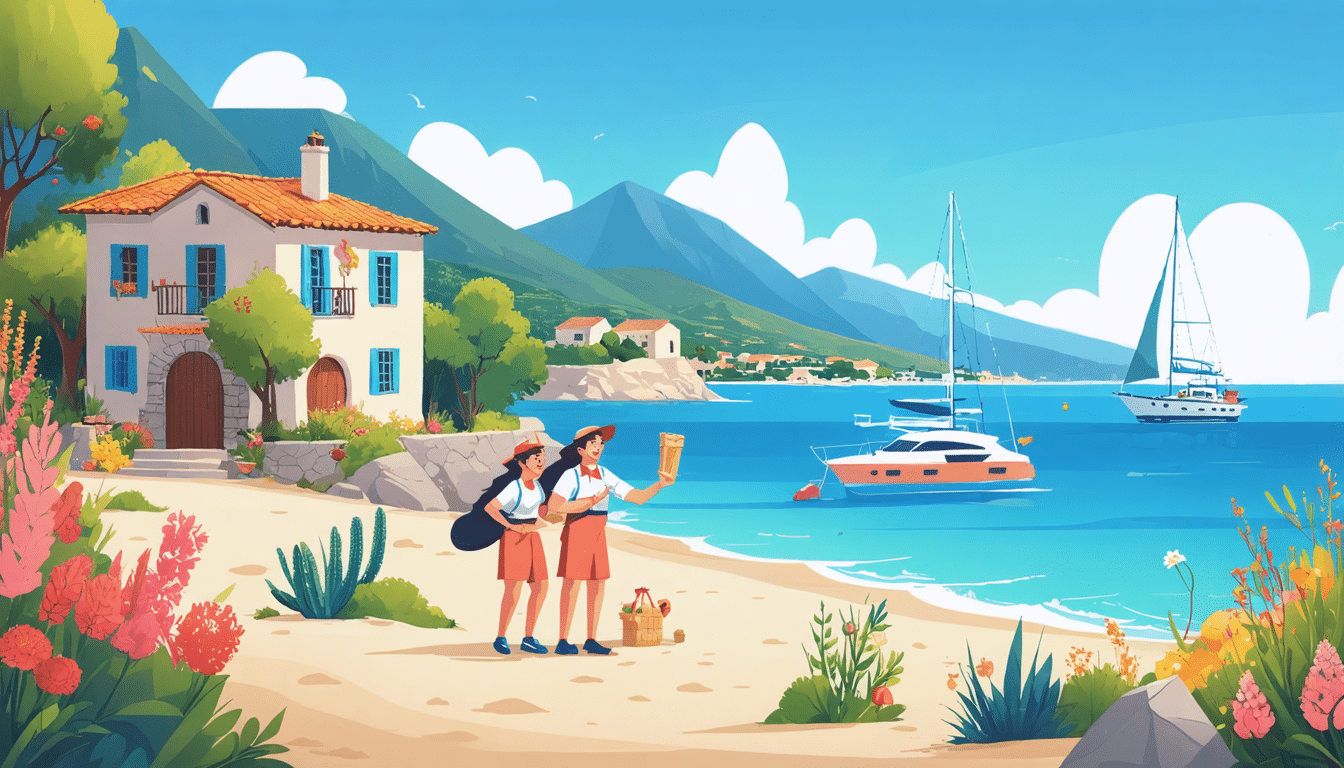Imagine a dream island, surrounded by turquoise waters, where luxury yachts stopped to offer their passengers a grand spectacle. But recently, in Corsica, the tide has turned for large boats and their owners: with increasingly strict anchorage regulations, rental companies are looking to circumvent the imposed limits… A strategy that is no longer really welcomed on the island of Beauty, where these tactics to stay close to the coast are now viewed with a critical eye.
On the island of Beauty, the strategies of boat renters to evade the new regulations are sparking debate and tension. In the face of increased protection of marine environments, many are now choosing to literally go around Corsica, redrawing the map of local nautical tourism. This phenomenon, once discreet, is today increasingly frowned upon by both economic players and the local population. This article explores why this practice has developed, what its economic and environmental consequences are, and how Corsica is attempting to preserve the balance between luxury tourism and the protection of its stunning landscapes.
When regulations push to maritime exile
Corsica, renowned for its turquoise waters and paradisiacal creeks, has always attracted large pleasure vessels. But since the introduction of a regulation on anchoring for yachts over 24 meters, the picture has changed. Nowadays, captains and renters often prefer to avoid Corsican waters, heading instead to Sardinia or other more welcoming shores. The regulation, which primarily aims to protect the precious seagrass beds, prohibits anchoring near multiple sites, forcing boats to anchor well offshore, more than 40 meters from the coast.
Real economic consequences
This exodus of large yachts does not make everyone happy. The nautical sector, essential for the local economy, is witnessing a decline in its revenues: in Bonifacio, attendance has reportedly dropped by 10% each year since 2022, according to the marina director. For some ports such as Saint-Florent or Calvi, the drop can even reach 40% in certain summers. However, the clientele of large pleasure yachts is the highest spender: when they arrive, these visitors support local restaurants, shops, and service providers. The economic impact of this segment is estimated to be nearly nine million euros in Corsica, accounting for up to 50% of port revenues.
When environmental protection leads to social tension
While the protection of marine wildlife and flora is widely supported, the method is not liked by everyone. The new rules, sometimes deemed too strict, leave empty anchorages and deserted docks that are usually bustling with activity during the season. Moreover, the inability to anchor in many places contributes to a growing sense of injustice among professionals, who see other Mediterranean destinations, like the Balearics, adopting mixed and flexible solutions.
Initiatives to find a compromise
To calm spirits — and prevent the disaffection from becoming permanent — several stakeholders in the sector are proposing the introduction of mooring buoys. This idea, already tested elsewhere, protects marine environments while maintaining a profitable tourist activity. In the Balearics for example, a anchoring guidance system informs boaters about the precise location where they can anchor, limiting the ecological impact while preserving the appeal for large vessels.
A growing unease on the island of Beauty
While large pleasure boating has seen a 50% growth in ten years in the Mediterranean basin, Corsica fears marginalization. This debate falls within the broader context of questions regarding the sustainable tourism model to adopt, even as other sectors are also experimenting with alternative rental forms, as evidenced by the growing popularity of Airbnb and similar services. Here, though, the peculiarity is that renters are no longer necessarily looking to stay: circumventing Corsica has become the new norm, to the point that dropping off a batch of millionaires on a layover is no longer seen as the Holy Grail on the island.
The worry of a future à la carte for professionals
The long-term risk? That the Corsican coastline loses its attractiveness, similar to certain airports hard hit by the exodus of airlines like Spirit Airlines. For professionals, it is urgent to find a new balance where environmental preservation does not equate to economic disaster. The stakes are high: around 2000 direct and indirect jobs depend on it, not to mention the reputation of Corsica itself, which has built its legend between crystalline seas and exceptional escapes with travel bags in hand.









